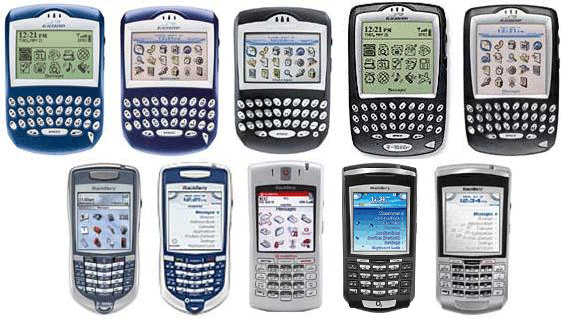
Research In Motion is done. They’ll be bought in the next year or so, their products will roll into whoever buys them – Microsoft, most probably – and they’ll go the way of Nokia, Danger, and countless other mobile platforms. They’ll exist independently for a while and then be subsumed. It’s over.
Here’s why.
There is no money in “business” phones. Blackberries aren’t status symbols. They’re the real-world equivalent of the thick, heavy IT-department-assigned business laptop. They’re staid, boring, and unwanted but people are used to them and, for email, they are quite capable. But that’s about it.
But these phones are increasingly getting a drubbing from IT departments who are starting to support more popular devices including, obviously, iOS and Android phones. No one ever got fired for installing a BES, but you can be sure someone will get fired for not supporting WebDAV standards over the next few years.
You can make lots of money selling hardware to fleet buyers, to be sure. But when those fleet buyers are saving money by refusing to pay for devices, where do you think consumers are going to go? Back to the same hardware they’ve been saddled with for years?
Their audience has already moved on. I remember a few years ago I was invited onto MTV (and never invited back) to talk about the “top smartphones.” I think it was 2007. These included a Windows Mobile device, a new Sidekick, and, inexplicably, a Blackberry Curve. The results of a viewer survey had the Sidekick beat out the other devices quite handily but what I couldn’t understand was how the Curve, for all its benefits, could have made it onto the list in the first place. The Sidekick was a lifestyle device and even the WinMo-powered Dash by HTC could be seen as a lifestyle device. But the Curve? Never.
RIM has an audience, but that audience is shrinking. Arguably they had a good run, but there are plenty of other devices from other manufacturers – Microsoft included – that have much more cachet in terms of general appeal. Even BBM no longer sounds as enticing as it once did, especially in an era of Facetime, Qik, and Hipchat.
RIM’s competitors are stronger and faster. Android is taking the lead and iOS is a close second in the general consumer phone market and, barring some misstep by either party, RIM will always be a distant third. I’d even say that Windows Phone, post Mango, is looking to be a better business solution for many users than anything RIM has to offer. What could RIM do to pull out of this death spiral? Release consumer phones? Nope, tried that. Release business phones? Nope, tried that. Release a tablet? Nope. Which brings us to our next point:
They blew the tablet race. Completely. They blew it. RIM is estimating they’ll sell 800,000 after preliminary expectations of 2.4 million. Even if every single Blackberry owner was forced by their IT departments to buy a Playbook at gunpoint they probably couldn’t sell half that number.
The Playbook is a beautiful, well-made device. But it is a year too late and far too confusing for the average consumer. Their biggest mistake? RIM failed to provide native email out of the box. That’s the long and the short of it. The biggest name in email couldn’t pull off email.
No matter what they change, they can’t escape the past. Take a look at the video below. This is from Nokia’s last smartphone to run a variant of Meego. Looks pretty great, right?
But it’s not. It will never see the light of day and, in fact, all of the dedicated work put into the UI and the OS will soon be lost. Why? Because it’s far too little far too late. Nokia, a giant in the industry, now exists as a shell of its former glory. RIM can, and will, go the same route.
RIM’s legacy is writ large on the world around us. Almost every major enterprise mobile system is patterned on their excellent email and PIM solution. But they are now slaves to their own success. They can’t sell anything other than a keyboard-candybar phone in an era where the keyboard is increasingly irrelevant or hidden away until needed. This failure of imagination in both consumer and manufacturer is their curse. In a world where every phone is smart and every phone does email, there is little to recommend any RIM phone over any other. It’s over and now we’re just waiting for the buy-out and inevitable disappearance of one of the greatest mobile companies in modern memory.
As “biased” as you’ll say I sound in this post, I’ll be sad to see them go.